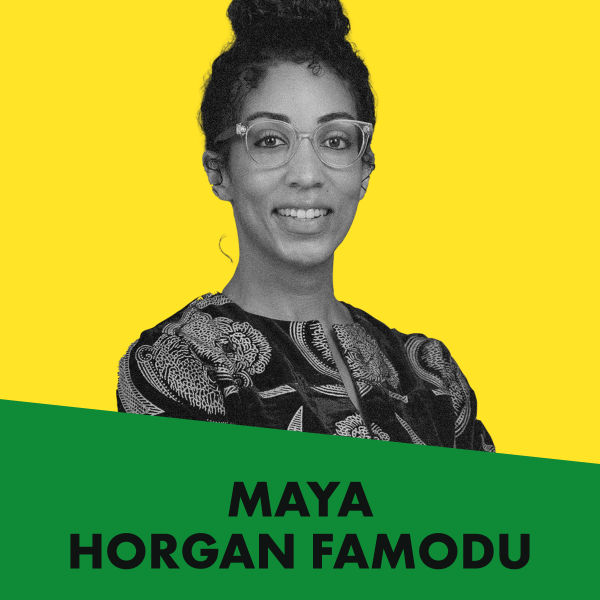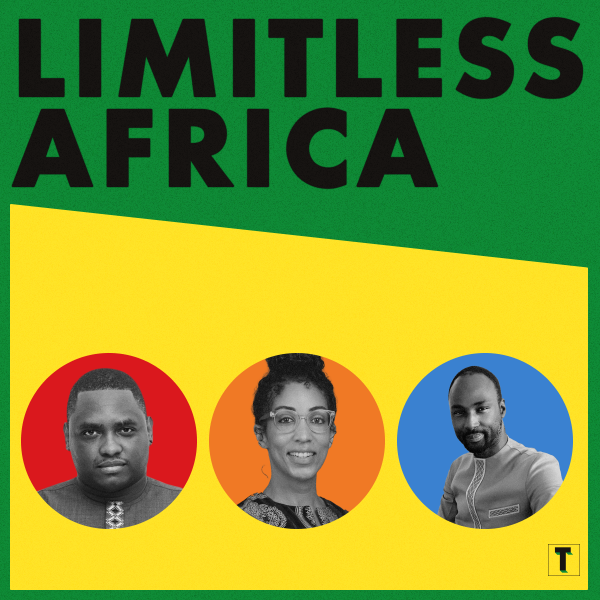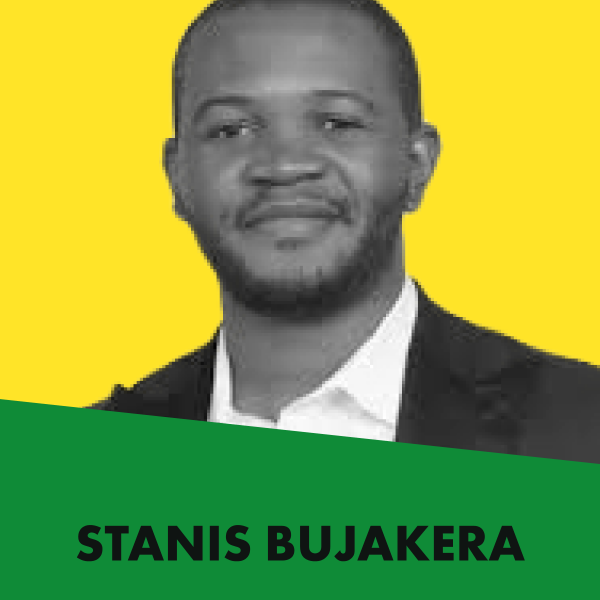It’s the 50th year anniversary of Rumble in the Jungle, the legendary fight that restored the title of heavyweight champion of the world to Muhammad Ali perhaps the greatest boxer of all time. We’re talking about it on Limitless Africa because it took place in Kinshasa, in the modern-day DRC, back then known as Zaire.
It is one of those iconic cultural moments in the relationship between America and Africa, especially in the 20th century. It was about so many things: the post-colonial period in Africa, the continuing battle for civil rights in America, the importance of sport and athletes in modern culture, the birth of a global culture as television became the modern medium and images of the fight were beamed into millions of homes. And also it was the story of a man, there was no one like him.
I met Ali at the Frankfurt bookfair, he was diminished but you could still tell the former glory of the man he was.
And to tell this story, to tell the story of Rumble in the Jungle, I’m talking to Jonathan Eig, a Pulitzer-winning author, who’s written the most recent biography of Muhammad Ali. Here’s our conversation.
Claude: Well, for us, it’s such an honour to have a Pulitzer Prize winning author on the podcast. And now we’re gearing up to celebrate the 50th anniversary of Romulan in the Jungle, and this is happening on October 30th. So tell us, what is it about that fight that made it so iconic? And why are we still celebrating Rumble in the Jungle 50 years on?
Jonathan: Well, thank you so much for those kind words, Claude. I guess your listeners can’t see that I’m wearing my Rumble in the Jungle t-shirt today. But, you know, that fight, they’re still making t-shirts about it. They’re still talking about it 50 years on because it meant so much, not just to Ali, but to the world. you know This was a time of upheaval um in America and in Africa. People were fighting for power, throwing off the shackles of racism and colonialism. And Ali comes to Africa and says, you know, here I am. I’m a symbol of what we all can be. We don’t have to adhere to the old ways anymore. We don’t have to say and do what people want us to do, what people expect us to do. I’m free and we can all be free. And here he goes to Zaire of all places, and he’s going to fight to prove that he’s the toughest, strongest, greatest, greatest, not just black man, the greatest man on earth. That’s how he sees himself, the greatest of all time. And he’s going to prove it.
He’s going to prove it in Kinshasa by beating George Foreman, who seems to be unbeatable. So the stage is set in just this and incredibly dramatic way.
Claude: Well, let’s actually start at the beginning. Can you explain what exactly Rumble in the Jungle was and really also how did it come about?
Jonathan: Sure. Well, if you want to really understand it, you have to understand where we get Muhammad Ali from. You know, he comes out of the Olympics in 1960 and becomes the heavyweight champion. And no one’s seen anything like this before, because he’s talking back. He’s giving lip to reporters, to the white media, to everybody. And acting in a way that we’ve never seen a Black athlete act in America. And he wins the heavyweight championship and then joins the nation of Islam, declares that he’s a Muslim, which most Americans know nothing about, and refuses to fight in Vietnam. And for refusing to fight in Vietnam, he’s convicted of draft evasion and sentenced to prison. And while he’s appealing his case, he’s denied the right to box. He loses the heavyweight championship.
And finally, you know years later, after three and a half years, he gets the chance to fight again. He wins his case in the Supreme Court, and now he’s got to fight his way back to try to get the championship again. And that’s what leads him to Zaire, to the Rumble in the Jungle, because he finally gets a chance to win back the heavyweight championship that the United States government took away from him.
And he’s going to prove that he was wronged. He’s going to prove that he was the greatest of all time. He’s beaten the United States government. Now all he has to do is beat George Foreman. And for reasons that are incredibly complicated, this fight ends up in Africa, in Zaire, under the watchful eye of ah of a dictator, Mobutu and it becomes an incredible circus, but also for many people, you know the first time they’ve learned anything about Zaire or thought about the connection between black Americans in Africa. So Ali was also shining a light on his roots at the same time.
Claude: But then how did Don King get involved? And also you mentioned the dictator Mobutu Sese Seko of Zaire, now known as Democratic Republic of Congo. How did those figures, you know, larger than life figures get involved in this?
Jonathan: One thing that I learned early on in researching this book, um as a as many, many people told me, is that the answer to every question in boxing is money.
He ends up boxing in Zaire because of money. Because Don King, the promoter of this fight, literally hands Ali a bundle of money and says, we’re going to have this fight in Africa. And Mobutu wants this fight because he thinks it’s going to give him legitimacy. It’s going to raise his profile. It’s going to show the world that he’s a powerful man.
And he’s willing to pay. He’s willing to use money that could have gone to helping his people to bring these two fighters over here, believing that it’ll be good for his image in the long run. So George Foreman and Muhammad Ali agree to fight in Africa, not because they want to show off their roots or fight for the bragging rights of who’s the greatest black man on earth, the greatest fighter on earth. It’s because they’re getting a lot of money, a lot of cash stuffed in their pockets.
Claude: Makes sense. So who was George Foreman at that point in time? Because he was a star as well, and he was very successful as a boxer at that time.
Jonathan: That’s right. George Foreman was the heavyweight champ. He had knocked out all of his previous opponents in just a matter of seconds. He’d beaten Joe Frazier, who had beaten Ali. So everybody thought that George Foreman was a monster, that he could not be beaten.
Claude: I would love for you, if you don’t mind, to read an excerpt from the book.
Jonathan: “If Ali was concerned about the political conditions in Zaire or about the moral consequences of doing business in that country, he didn’t say. He was Ali. The normal standards of conduct did not apply. His race, his religion, his defiance of his own government, and his refusal to fight in the Vietnam War had made him one of the world’s most visible symbols of rebellion.
In that way, fighting in Africa made sense, and that was enough to trump all other concerns. Don King called it a symbolic black happening. And that vague glorification resonated with Ali. So did the $5 million, dollars of course. But Ali the showman and public relations wizard recognised immediately the powerful imagery of two black men.
Two American black men fighting for the heavyweight championship of the world in the heart of Africa, the continent from which their ancestors had been sold into slavery, a place where black Africans still struggled to shake free from colonialism. The winner of this fight would be the greatest black warrior in the world, the man who dared to face his demons, the man who conquered white supremacy, the true champion of disenfranchised, downtrodden, dark-skinned people all the world over. The deal was made. Ali would fight Foreman on September 25th, 1974 in Kinshasa, Zaire.”
Claude: And the event finally takes place on October 30th. And it’s 2 a.m. and Ali is in a long white robe fringed with a black African pattern. You know, it sounds a bit cliché as an African, but it works. But how does Ali win this fight? And when he’s actually, as you said, he’s the underdog in a way, right? And he’s fighting a man far younger than him.
Jonathan: Yeah, it’s a great scene. It’s one of my favourites. It might be my favourite moment in the book because, as you mentioned, it’s two in the morning. There’s a threat of massive thunderstorms, and they had to build a roof over the ring in case the thunderstorms hit. And a lot of Americans, a few Americans at least, have travelled to make this trip, and many are watching it on TV. Many are listening to it on the radio. I was listening to it on the radio back home in New York.
There’s a sense that there’s something magical happening here. And nobody really believes Ali has much of a chance, but he’s Ali, so we expect miracles. And he gets into the ring with Foreman, and Foreman comes out storming, just like ready to knock him out, ready to kill him, wanting to get this over with as fast as he can. And Foreman, this is what he does. He knocks people out, sometimes in just ah you know a few seconds. um you know His fights last 30 seconds. you know he’s a knockout machine. He’s the strongest puncher boxing has seen in generations. And Ali is just… moving. He’s avoiding him. He’s trying to tire Foreman out, and he starts hanging out on the ropes, and the ropes are very loose for this fight. And Ali’s just bouncing off the ropes and letting Foreman come at him and just moving enough so that the punches don’t quite land, or don’t quite land enough to hurt him. And this… People are yelling at Ali from his corner, get off the ropes! Get off the ropes, dance, move! And Ali… turns and says I know what I’m doing you know and finally when he sees that Foreman begins to tire when Foreman begins to slow down because throwing all those big punches and not landing takes a lot out of you and it’s you know it’s Foreman you know is not in the best shape that’s when Ali finally bounces off the ropes turns and lands some punches and Foreman staggers and Foreman goes down and you just see Ali’s eyes lighting up as he recognizes that he’s got him. That Foreman is going down like a tree, just slowly falling, and Ali’s dancing, and it’s a beautiful moment. And the crowd goes crazy, chanting Ali, Ali. And it’s, you know in many ways, his finest moment in the ring, I think, because he’s done it. He’s come back from everything, from the ban, from losing his crown and he’s come to Africa and he’s proven that he really is the greatest.
Claude: And so my final question to you, Jonathan, is why is Muhammad Ali still a modern icon today?
Jonathan: Well, you know, I think it connects to this idea that we’re talking about, this feeling that we can’t make a difference, that the problems are too great. Ali didn’t ask, didn’t expect to be put in this position of leadership, of revolution. He just wanted to fight and then this opportunity presented itself to be heard and to make a difference and he realised that he had this power this potential to try to make a difference and that he had an obligation to do that and that meant standing up for his beliefs and he was willing to do that and to sacrifice for it.
He’s willing to go to jail. He’s willing to give up his boxing career. He said he would face a firing squad before he compromised on his values.
And I believe him.
And I think that’s why um people still respond because he believed in something bigger than himself. We feel like today we don’t have enough heroes. We don’t have people who are willing to sacrifice.
We don’t have people who believe in something bigger than themselves. And I think that’s why Ali still matters today.









